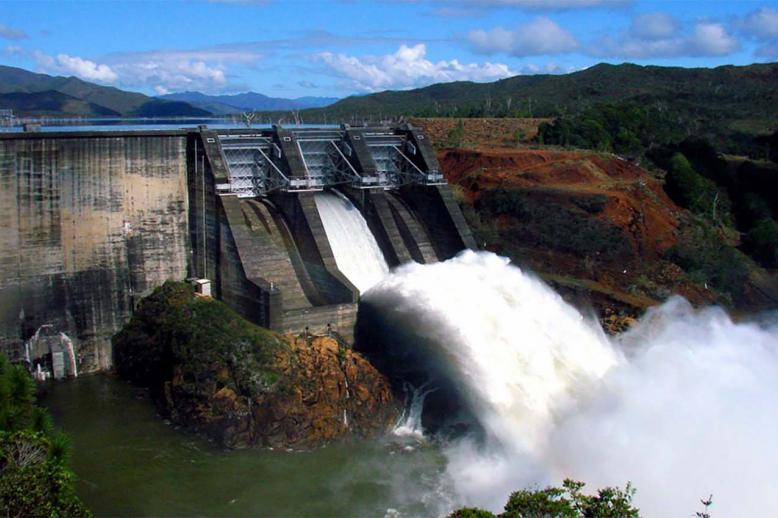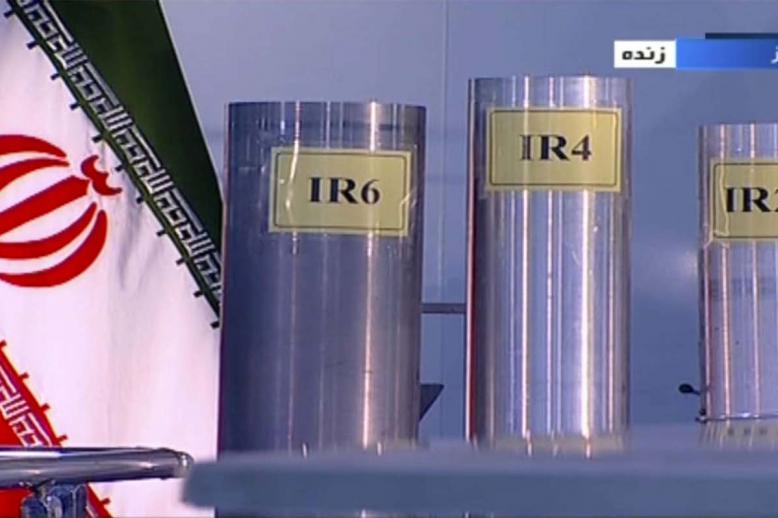Emirati inspiration for Iraqi Kurdistan
The UAE, like the Kurdistan Regional Government (KRG), stands out as a model of stability in a region largely riven by turmoil.
It is no coincidence that the president of the UAE, Sheikh Mohammed bin Zayed Al Nahyan, has met the prime minister of the KRG, Masrour Barzani, to discuss ways of restoring regional stability. The UAE is very much aware of the threat of instability which hovers over the region.
The Kurdistan Regional Government is perhaps paying the price of instability, every day, as it faces compounded crises. One pits it against the central government in Baghdad and dates back several decades while another that dates from the nineties of the last century was caused by the internal rift between the Kurds themselves and the eastern part of Iraq. This is a rift that has not been resolved.
One can only imagine how much energy was wasted by the Iraqi state, which found itself compelled to deal with problems that had accumulated since the birth of the modern nation at the end of the Ottoman era, instead of trying to cope with the major problems which have arisen over the years.
Iran has relentlessly worked to tear the region part, taking advantage of the weakness of the Iraqi state resulting from Baghdad’s losing its central role as a guarantor of regional peace and stability.
Iran has invested in every strife, to the point that crises have often ended up spinning out of control. Hence an Israeli military action against Iranian encroachment led to a situation where Hezbollah was used as an excuse to “resist” Israel and “support” the Palestinian cause, while continuing to offer Tehran an opportunity for intervention. This sparked a full-fledged regional crisis which eventually caused the fraying of the Lebanese state at the expense of the Lebanese national project itself.
Similar scenarios have developed time after time. It was the case in Yemen where unity was scuttled as the country was divided between north and south before sliding into a major crisis threatening its very existence. It was also the case in Syria where all kinds of factions have been fighting to win control of the national state, which has been confronted by an existential threat while it struggles for survival.
Every form of strife fuelled by Iran has evolved into an existential war facing this or that minority and creating a threat of internal disintegration of the state itself, as we have witnessed during the last days of Bashar al-Assad’s rule.
The issue should never have been one of survival and annihilation, especially in this particular stage. Bashar al-Assad should have left more quietly as a failed leader. It should have never been a case of fragmentation of a country like Syria, which used to be positioned to play a central role in the region. Instead, one has witnessed a repeat of Iraq’s splintering since the US invasion and the compounded American and Iranian occupation.
Compounded occupation is a dangerous phenomenon, and no one can predict its outcome and in whose hands control of the country will end.
The meeting in Abu Dhabi between the Emirati and Iraqi Kurdistan leaders is unique in its significance.
Sheikh Mohamed bin Zayed Al Nahyan is a leader who has inherited a legacy of unity forged by the late Sheikh Zayed bin Sultan Al Nahyan when he embarked on a milestone project to change the course of history. At a time when objective circumstances would have dictated the fragmentation of the state, Sheikh Zayed chose to be a unifying leader for other figures who saw unity as serving the interests of their people despite the scarcity of resources and limited potentials at the time.
We are talking here about the seventies of the last century, when leaders of the Emirates came together to put the interests of their people ahead of the reflexes of disintegration and self-interest.
This is the legacy which Sheikh Zayed bequeathed to Sheikh Mohammed bin Zayed, who witnessed during his childhood the early years of the unification of the UAE, and understood firsthand how the interests of the people take precedence over the interests of individuals. This is a unique legacy bound to shape the personality of the one who inherits it.
The meeting between the two leaders is also rare from a Kurdish perspective as there are powerful centrifugal forces in Kurdistan today bent on tearing apart the Kurdish entity while claiming to cement the sense of belonging to the Iraqi homeland.
There are forces working to tear apart Iraqi national unity while pretending to work for the cause of unity. No need to mention the issue of salaries, which some are using to pressure Kurdish civil servants. From their point of view, the Iraqi state is one nation as long as it serves the interests of the Iranians.
We have only to look at the state of fragmentation of Iraq to figure out whether we are dealing with advocates of unity or with separatists. There is no need to emphasise the extent to which the Iraqi body politic has been torn apart.
It has been only a process of bargaining for oil as quantities end up being transported by tanker-trucks every day across the border under the pretext of striving for Kurdish unity.
How can separatist calls to divide eastern and western Kurdistan be justified by invoking political differences between the Patriotic Union of Kurdistan (PUK), ironically named to reflect unity, but keeping power in the hands of one ruling family, on the one hand, and the Kurdistan Democratic Party (KDP), on the other? There were no ploys spared by some who said, “But the other party is not democratic,” despite their loss in successive electoral contests, time after time, by huge differences which the KDP accepted more than willingly.
One does not need to recall the attempts to fragment the Kurdish landscape in Sinjar and beyond and to subjugate Kurdish forces to the will of Iran, before the great Iranian demise.
There have been many stages in history which the Kurds, before any others, recall with bitterness.
These are instances where efforts were devoted to dividing Iraq according to sectarian quotas in areas which were expecting coexistence and brotherhood, especially in Kirkuk, where instead the seeds of hostility were sown among new generations. Is there any reason for all this, unless the goal was to ensure the victory of Iran and its project of fragmentation in Iraq and beyond, against all logic?
Iraqi Kurds have sat down to be told about to the rich experience of the UAE in terms of coexistence and success. Masrour Barzani listened to second and third generations of UAE leaders as they presented their approach to development and initiatives. The Kurds sought inspiration as they eyed success in Iraqi Kurdistan while accepting shortcomings where they existed.
This is a new mindset which has emerged despite the anxiety which we have witnessed over the loss of votes, which went to young movements in particular.
These are Kurdish movements of which we are reminded of every new regional election. These movements have a share which must be taken into consideration. It is not just mere electoral rhetoric coming from isolated individuals.
The response to the gains by the remnants of traditional forces or those eager to exploit the fragmentation of Peshmerga loyalties or the issue of salaries and regional crises, should be aligned with party work and government performance, not with blackmail and intimidation.
The Kurds are a rising regional power and cannot be treated as a divisive force or classified as separatists.
We live in a world where a wide perspective is needed and where all definitions are possible. This is the least consideration we owe the Kurds, even in terms of recognising them as a people who have pursued their own vision and striven for their rights while defending the weak among them. Furthermore, they have even offered a safe haven for refugees from the brutality of clerical forces, whether cloaked in Iraqi identity or invoking a shameless affiliation with Iran’s Khamenei.
It is no coincidence that the Spartan forces gathered in Abu Dhabi have had their say on what is happening in the region, at a time when great powers are seeking to determine the course of events in the world since horrors unfolded with “Al-Aqsa Flood.”
This was a gathering of rational forces that have been defined by experience as they ponder the points of strength at their disposal and the legacy of wisdom carried over by Sheikh Mohammed bin Zayed from Sheikh Zayed’s wisdom and chivalry.
This was a meeting allowing frank discussion between conscious allies who say to each other: “Here we were right and here we were wrong. Here our enemies were right and here they were wrong”.
Our region would not have sunk to its current dangerous level had it not been for its many failures in dealing with a large number of issues that were swept under the rug only to become intractable.
This is why some people are cheerful these days in the Middle East, while others look at developments anxiously.
This is also why some people scramble for solutions to crises for which there is no way out except to return to the starting point, or to say: “Our enemy or our rival exercised strategic patience and used the tools of politics, media and economy, and even blackmail, while we rushed the results”.
These are frank and brave Spartans who are not afraid to ask tough questions.
Haitham El Zobaidi is the Executive Editor of Al Arab Publishing House.







